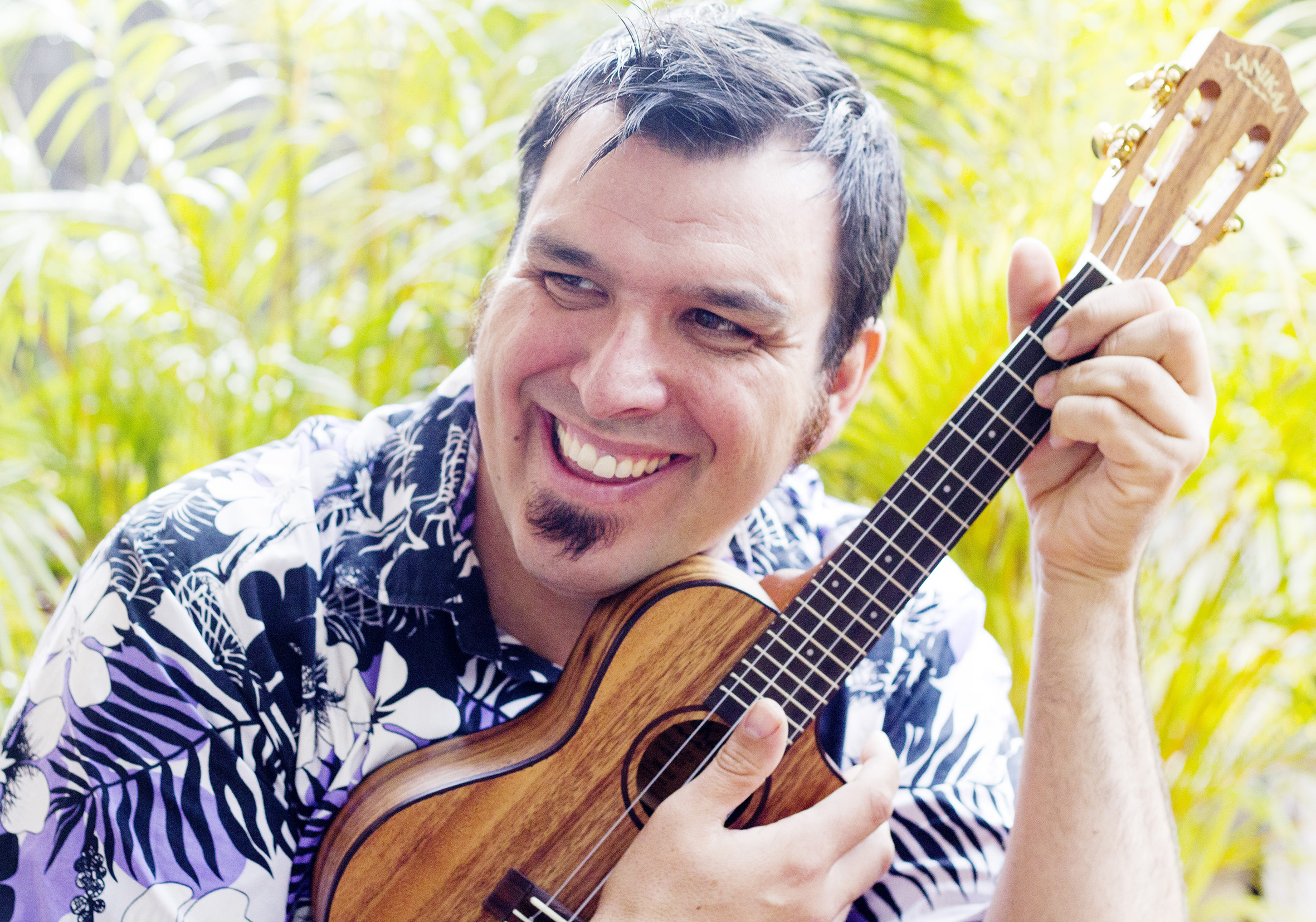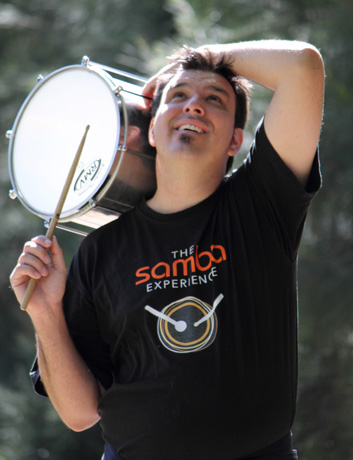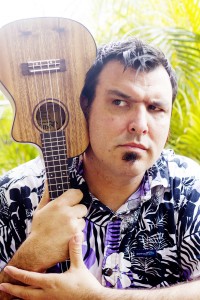
For Those About to Rock
By Andrea Duchon
Whether or not Johnny Rotten would agree with Tom the Pom that acoustic instruments and the DIY scene are the new punk is kind of beside the point. And even if the opinion of the genre’s former front man differed, he’d still have to concede that Tom has a damn good point.
In fact, I was surprisingly swayed by Tom’s argument as he outlined how crafting lamps made of bottles and learning about cocktail mixology bears any resemblance to Johnny’s on-stage mayhem.
I’m sitting with Tom before his fortnightly class at Work-Shop, where he teaches ukulele playing to a room of about 15 people. Tom didn’t start out with the uke but it’s one of many instruments he’s picked up over the years, in addition to guitar, bass, didgeridoo and a shit ton of percussion.
If that sounds like a lot to master, you’d be right. But Tom’s not in this business to master any one instrument. Instead, he tells me he’s more interested in getting “a good result quickly with a minimum of effort.” Something he says is “punk as fuck.”

When I ask him to elaborate, he gives me an example, using the samba scene in the UK – his home country – as the canvas. Tom explains that the English samba scene is different because unlike other places, anyone can play a show, regardless of standard or skill.
Remember the breaks and learn the tunes and you’re in, he explains. Can’t remember the breaks but have the grooves down? Then just don’t play the breaks. It’s really that simple.
“That’s the real punk, the true punk,” says Tom. “We don’t actually care that much about whether you’re enjoying it. This is the show, this is our show. We hope you enjoy our show, but this is our thing and this is what we do. Go home bored or don’t go home bored, that’s the punk spirit.”
It works the same way with his classes, whether he’s teaching 30 middle-aged women or a gaggle of tiny preschoolers – both audiences he interacts with on a regular basis.
“I know a lot of people want ukulele players to be at a certain level of “good,” but by saying we’re going to have a class and it’s only going to be three chords, you really can put the genie back into the bottle,” says Tom, contorting his hands into double thumbs ups to illustrate his point.
For Tom, putting the genie back into the bottle means reclaiming the part of a skill that’s off-limits to everyone but the best artists by instead turning the lens on yourself and “giving it a go,” just to see what happens.
Whether or not you’re any good at it? Well, just like Rotten’s opinion of acoustics and DIY, that’s kind of beside the point, too.

“I think this Work-Shop place is as punk as fuckkk,” says Tom, drawing out the end of the word for emphasis. “It’s punker than punk ever was, because it’s not about the swearing or the spitting, it’s about come-and-have-a-go, which was the essence of punk in the first place.”
As Tom’s talking, I’m getting vivid images of an 18-year-old version of this cheery Englishman, dripping sweat in a basement club, whilst screaming the lyrics to Anarchy in the UK and denouncing the queen. But when I ask him if punk was his first true love, he tells me no:
“British pop SKA. That was my first love. I think about 50 percent of people in Britain had the same first album as I did: Complete Madness by Madness.”
So how did someone with such benign beginnings in musicality find himself over 9,000 miles from home, teaching obscure instruments that are infinitely more comfortable in Brazilian drum circles and Aborigine ceremonies than in London pubs?
The answer lies in drain pipe and Aphex Twin’s first EP, Digeridoo. Ironically, there’s no actual didgeridoo playing on the album, though Richard James worked for days to recreate the effect electronically.
“My mates and I took to teaching ourselves how to play on pieces of drain pipe. Then at 27, I backpacked through Australia. I learned loads, but I never thought I’d come back,” says Tom, who’s currently 39.
That is, until a mutual friend introduced him to his now-wife and he discovered she had permanent residency down under.
“I asked her to marry me on the first date as a joke,” Tom recalls. “18 months later, I actually asked her to marry me.”
Now, a four-and-a-half year old son and permanent residency of his own in hand, he’s on a mission to change the way people learn about music.
“When I was young, music was taught at best like a craft and at worst like a science, not like an art. With so many of these instruments like the clarinet, you’ve got to learn so much technique and theory before you can rock. With an instrument like the ukulele, you’ve got to learn a tiny bit of technique and no theory and you can rock,” he says.
And most of the time, isn’t massively rocking out the only thing we’ve been trying to do all along?
Tom teaches ukulele playing and introduction to percussion at Work-Shop almost every two weeks. For a list of his next available classes, click here
